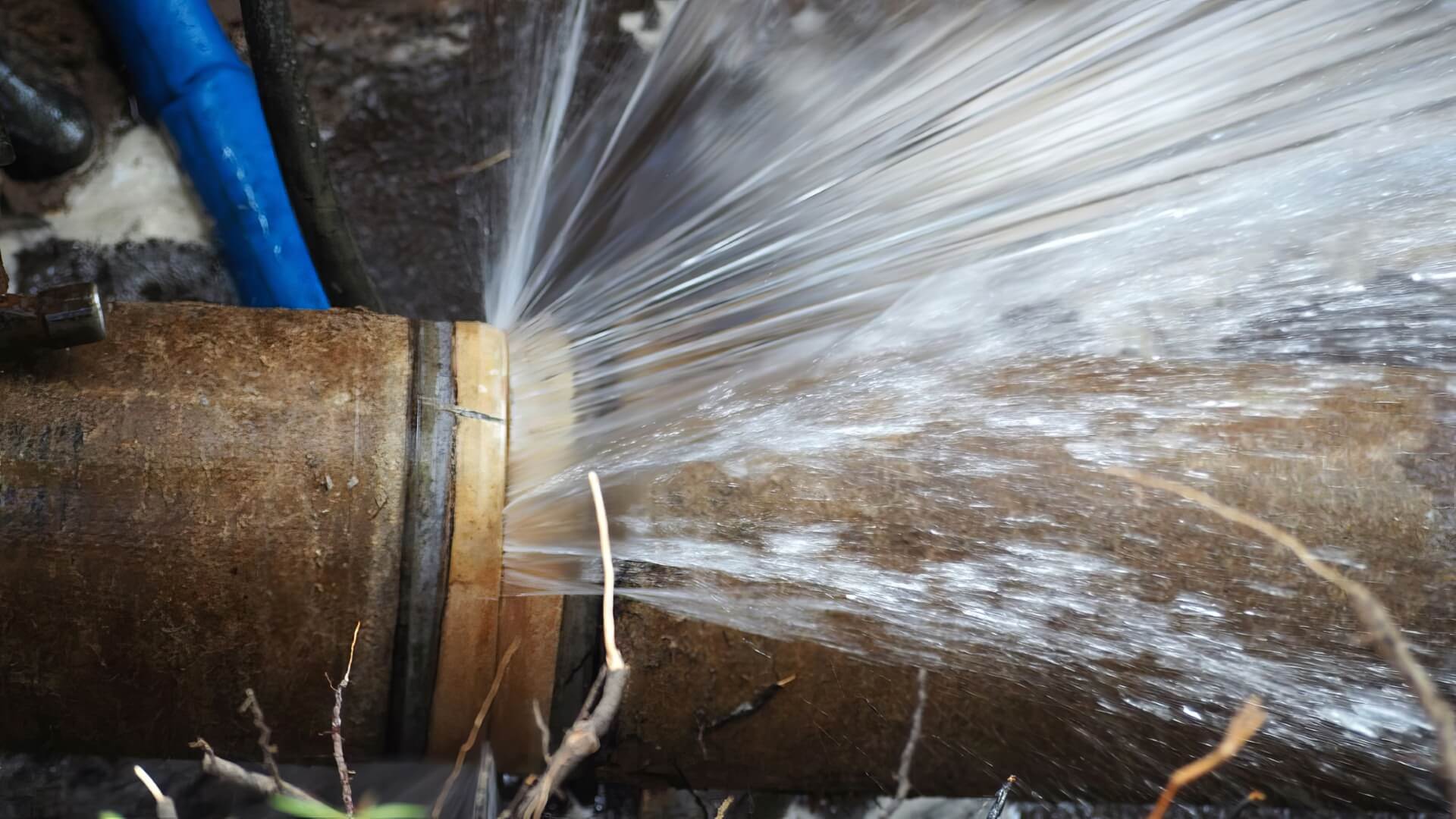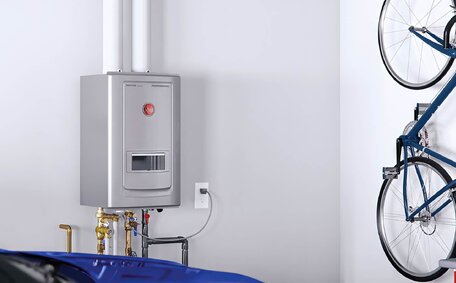Understanding Pipe Relining for Safe Drinking Water
Pipe relining is critical for maintaining water pipe system integrity and preventing leaks. Central to the process is the insertion of a flexible epoxy resin lining, effectively creating a 'pipe within a pipe’.
The expert team at Quakers Hill Plumbing uses sophisticated CIPP technology to reline pipes without the need for disruptive digging.
Concerns about contaminants from relined pipes, especially in context of drinking water safety, are addressed with modern techniques such as Nu Flow’s use of inert epoxy coatings. These create a safe barrier, ensuring relined pipes meet stringent health standards, including those from the EPA and CDC, and are safe for potable water lines.
The epoxy barrier prevents corrosion and ensures drinking water remains uncontaminated from previous pipe issues.
This article delves into the pipe relining process, safety of the epoxy barrier, and its benefits over pipe replacement, advocating for this trenchless method in preserving the integrity of drinking water pipes.
How Pipe Relining Works
Trenchless technology guarantees minimal disruption, allowing even damaged existing pipes to be relined without the chaos of major excavation or full replacement. The process starts with a CCTV camera inspection to identify any faults or damage in the pipes. Then, pipes are cleaned to ensure all debris is removed before relining.
A pliable epoxy resin lining, bolstered by felt material, is introduced and then maneuvered into what was the original pipe, using compressed air. We use advanced CIPP technology for seamless adhesion of the epoxy to the host pipe. It is inflated to conform to the shape of the pipe, bonding with the inner walls.
UV light or steam cures and hardens the resin, transforming it into a smooth, corrosion-resistant pipe. This 'pipe within a pipe’ method, using epoxy coatings, seals leaks and prevents toxins from contaminating drinking water, an improvement over traditional pipes.
Property owners find pipe relining cost-effective, preserving water line integrity without the upheaval of digging or replacement. Not only does this process prolong your pipes’ lifespan for decades, it enhances flow efficiency and eradicates any potential for leaks breaks or risks of contamination.
Materials Used in Pipe Relining
Certified by health agencies, epoxy resin employed in pipe relining forms a protective barrier within drinking water pipes and comes integrated within flexible CIPP linings for enhanced safety.
After being inserted into the host water lines, this fabric tube is inflated, allowing the epoxy barrier coating to penetrate the material thoroughly. It chemically solidifies into a seamless, plastic potable water pipe that can endure high pressures and temperatures. Epoxy resin is exceedingly resistant to corrosion and chemicals, making it ideal for safeguarding systems against toxins in hot water service lines.
While past concerns about BPA leaching into water from epoxy linings existed, our process ensures pipe safety without these issues. Modern BPA-free, food-grade epoxy resin used in pipe relining meets EPA and CDC certifications for drinking water contact.
The cured epoxy’s inert properties create an impermeable barrier that isolates water from old pipe materials, protecting against corrosion and contaminants from legacy pipes. This ensures the safety of drinking water pipes for the long term.
Evaluating the Safety of Pipe Relining Materials
Epoxy resins and fabrics used in pipe relining have undergone assessments by health authorities, confirming their safety and non-toxicity when installed correctly.
Assessments by the EU and US EPA show that correctly cured epoxy resins are non-leaching and offer long-term, reliable use for homeowners’ water supplies.
Specifically, studies found that relining can ensure less than 50 parts per billion of uncured components diffuse from correctly installed epoxy linings into water samples. This is well below the health safety benchmarks for drinking water quality.
The epoxy coating forms a layer within the pipe, preventing corrosion and lead infiltration while enhancing water quality. This layer acts to significantly reduce water contamination risks from old pipe substances like lead from lead pipes or cast iron.
Homeowners who have had the great job done through modern relining techniques would highly recommend, knowing the materials used are safe and durable in maintaining the integrity of their drinking water pipes for decades.
Testing Drinking Water from Relined Pipes
To certify the safety of sewer line repairs, a detailed process including testing relined drinking water pipes is executed, using professional leak detection and water testing to ensure no contaminants breach the epoxy barrier.
These tests got the job done, meticulously assessing whether any uncured resin, corrosion byproducts, or residual contaminants from old pipes are bypassing the protective epoxy barrier and infiltrating the water. Health organisations like the CDC note that correctly installed epoxy linings do not leach chemicals, so water testing helps confirm proper application.
Annual checks are crucial for maintaining the epoxy lining’s integrity to ensure prolonged protection. If tests reveal abnormalities like unusual pH, bacteria or metal traces, it may signal the need for pipe repairs.
Continuous water testing is advised for peace of mind, confirming the safe and inert nature of pipe relining and helping homeowners track water quality and necessary maintenance of the epoxy barrier.
Health Standards for Safe Drinking Water
Australia has stringent health standards and national guidelines in place to safeguard the water supply, ensuring the drinking water’s safety for households.
The Australian Drinking Water Guidelines outline maximum acceptable levels for potential contaminants in drinking water, including heavy metals like lead, bacteria, chemicals, and other toxins.
Pipe lining allays concerns about lead in drinking water, keeping concentrations well below concerning levels. E.coli bacteria levels also need to be absent. The guidelines list over 20 key physical, chemical and microbial parameters.
Pipe relining materials must meet Australian health standards for drinking water contact. Correctly installed epoxy pipe systems, such as those from reputable providers like Quakers Hill Plumbing, are certified to be completely inert and non-leaching per the guidelines.
Regular testing by authorities and homeowners is essential to ensure that the water supplied remains free from contamination, such as metal levels from lead pipes or intrusion by tree roots, which may introduce bacteria and toxins above the safe limits, thus posing health risks over time.
When to Be Concerned About Drinking Water from Relined Pipes
There are a handful of critical indicators that may signal a complication with drinking water from relined pipes and impel homeowners to initiate action:
- Noticeable change in taste, colour or odour - This may reflect contamination from corrosion, legacy pipe materials or resin leaching
- Gastrointestinal discomfort after drinking the water - Could point to microbial buildup permeating past the epoxy barrier
- Drop in water pressure or flow changes - Potential coating damage allowing deposits to accumulate and block the pipe
- Tests detecting contaminants above safe limits - Failed epoxy lining or improper installation allowing toxins to leach into water
In such predicaments, homeowners ought to refrain from using the water and let us swiftly coordinate extensive water testing when they need them. Quakers Hill Plumbing will talk me through the inspection for lining damage and confirm if repairs or replacements are necessary to ensure drinking water safety per health standards.
Annual testing also helps monitor conditions and ensure the epoxy barrier maintains integrity long-term. Any positive test results or rapid changes in water aesthetics should prompt investigation into underlying causes.
Periodic testing and timely repairs guarantee that relined pipes continue to provide safe drinking water over the long term, with a focus on upholding the integrity of the epoxy coating.
Expert Recommendations on Relined Pipe Safety
It’s reassuring to know that, with the quality work and diligent installation of modern epoxy coatings, large water pipes that are relined are sanctioned as safe for drinking water by expert plumbers and health authorities.
Endorsements from the Water Services Association of Australia confirm that when epoxy pipe linings are correctly installed, they safeguard against corrosion and provide a chemical-free barrier, separating potable water from obsolete piping materials.
The US Environmental Protection Agency affirms that proper application of flexible epoxy coatings in pipe relining meets health standards for drinking water and prevents toxin exposure from old pipes.
Certified plumbing contractors like Quakers Hill Plumbing stay up to date on the latest standards and best practises to ensure every pipe relining job restores the safety of customers’ drinking water systems.
With regular upkeep and scheduled water testing, relined pipes can faithfully serve our blocked systems, ensuring there are no health dangers to households.
Ensuring Relined Pipes Meet Safety Standards
Homeowners can ensure the safety of relined water mains within their property by following several key steps with professional pipe relining services:
- Use a reputable, licenced plumbing contractor like Quakers Hill Plumbing that follows best practises for pipe relining installation and only uses inert, non-toxic epoxy materials certified for potable water contact
- Arrange professional drinking water testing after the relining to validate no uncured resin or contaminants are leaching from the epoxy lining into the water
- Conduct periodic water testing (e.g. annually) to monitor conditions and confirm the long-term integrity of the protective epoxy barrier
- Visually inspect accessible sections of relined pipe for damage, deposits or deterioration that may compromise the lining over time
- Ask the plumber to provide documentation that the specific epoxy product used has testing data validating it meets health standards for direct potable water contact
Following professional installation procedures and maintaining the relined pipes with periodic inspections and water testing ensures homeowners can rely on the safety of trenchless pipe repair for drinking water delivery within their properties.
The Long Term Durability of Relined Pipes
Pipe relining ensures that properly installed pipes offer decades of use with consistent water quality and flow efficiency.
Studies by water authorities have found that epoxy-based pipe linings have an average service life exceeding 50 years. This high durability is vital for piping systems, stemming from the strength and corrosion resistance of inert epoxy material.
The pipe relining method resists scale buildup and prevents water contamination, reducing issues like tuberculation and limescale that impair water flow.
Unlike traditional metal pipes which are prone to galvanic corrosion, this relining technique ensures that all pipes prevent rusting and deterioration. The epoxy barrier remains intact to reliably deliver safe, clean water while eliminating pinhole leaks.
So with proper installation and periodic maintenance checks, homeowners who used pipe relining can expect their drinking water pipes to keep supplying potable water for decades without needing repairs or replacement.
If you have questions on pipe relining’s durability or wish to book a consultation, provide your plumbing details and contact Quakers Hill Plumbing at 1300 349 338 or [email protected] for expert advice.






